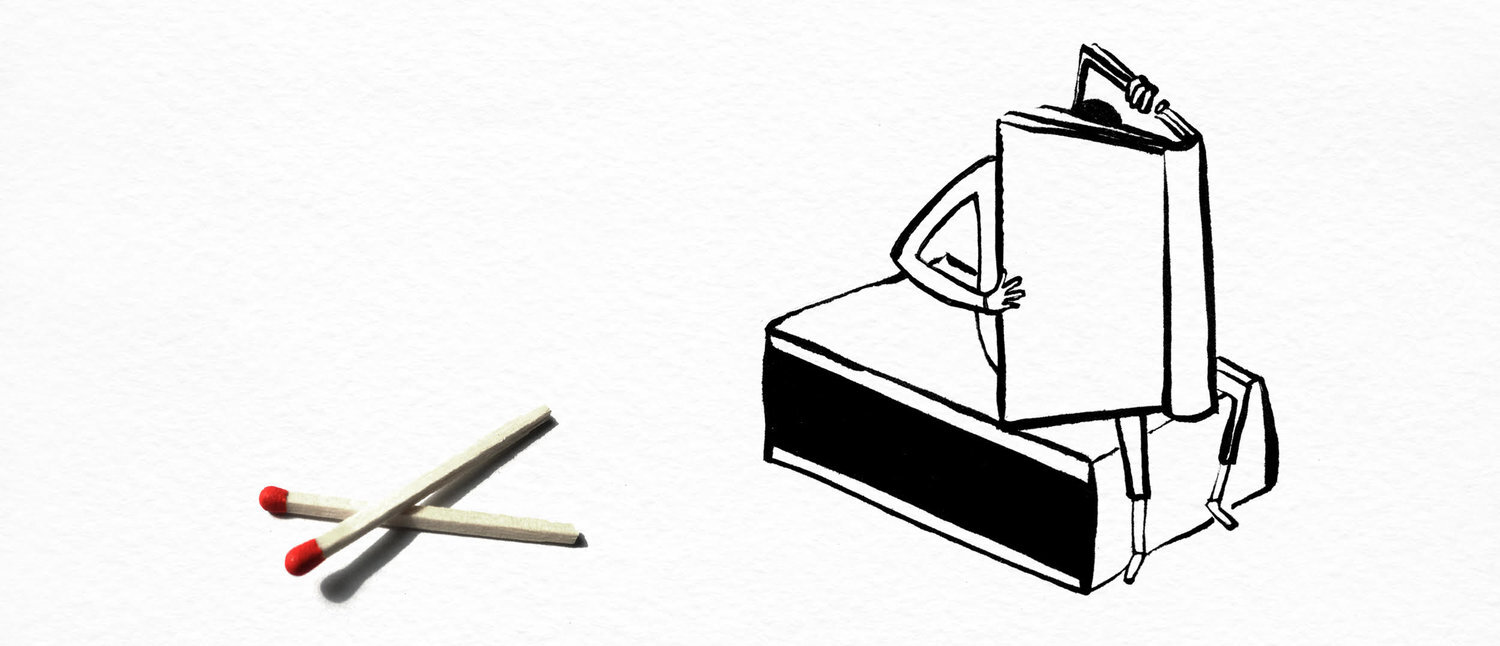Staff Recommend: 13 April - 20 April 2020
This week, CRIN staff recommend: A glimpse into an alternative future on Earth Day, the language of martyrdom, collective grief and documentaries on American Circumcision and 2040.
Read:
Article on Covid-19 and climate crisis
On the 50th anniversary of Earth Day, The Guardian looks at how the Coronavirus has led to reduced pollution, re-emerging wildlife, plunging oil prices and revealing the size of the task facing humanity:
[T]he pain of the Covid-19 shutdown has highlighted how ponderous the world’s response has been – the expected cut in emissions, for example, is still less than what scientists say is needed every year this decade to avoid disastrous climate impacts for much of the world.
[Gina] McCarthy, now head of the Natural Resources Defense Council, noted that some Indian people were seeing the Himalayas for the first time due to the veil of air pollution lifting. “You wonder if people will want to go back to what it was like before,” she said. “The pandemic has shown people will change their behavior if it’s for the health of their families. This has been the lost message on climate, that it’s a human problem, not a planetary problem. We have to show you can have a stable environment and your job, too.”
Read the full article here.
Article on language of martyrdom
An important contribution from Slate to the discussion around healthcare and essential workers, and how using words like 'heroes' to describe them could distract from what we should be doing about their situation. We are all presumably beyond grateful for what they are doing, but could this rhetoric be silencing them by making it sound like they have a choice in the matter?
We keep struggling with the language of privilege and good fortune. When asked how we are, we intone solemnly that we are lucky not to have to risk our lives in this crisis. Maybe instead of thanking and revering and worshipping our first responders we could instead simply ask them what they need and then find a way to give it to them. Even heroes need armor and a spear. Yes, these essential first responders are our heroes. But if the price of their heroism is silencing, retribution, death threats, and delegitimization, we should perhaps find another name for them. Might I suggest that we start by remembering they are humans, too?
Read here.
Article on collective grief
An insightful interview from HBR with David Kessler, grief expert and co-author of The Five Stages of Grief, on the palpable sense of collective grief that has emerged during the global pandemic, and finding meaning.
This is a temporary state. It helps to say it… And, I believe we will find meaning in it… Keep trying. There is something powerful about naming this as grief. It helps us feel what’s inside of us… When you name it, you feel it and it moves through you. Emotions need motion. It’s important we acknowledge what we go through... We tell ourselves things like, I feel sad, but I shouldn’t feel that; other people have it worse. We can — we should — stop at the first feeling. I feel sad. Let me go for five minutes to feel sad. Your work is to feel your sadness and fear and anger whether or not someone else is feeling something. Fighting it doesn’t help because your body is producing the feeling. If we allow the feelings to happen, they’ll happen in an orderly way, and it empowers us. Then we’re not victims.
Read the full interview on HBR.
Blogs from young climate activists
The Elders, led by Mary Robinson, are sharing blogs/stories from young climate leaders for the next 10 weeks.
As a young climate activist, I’m often told, ‘you’re too young to understand’, that I’m hopelessly idealistic and naive. I laugh at the irony – we school strikers have had no choice but to grow up, and fast. I’ve learned to face hard facts that adults seem incapable of accepting.
Read the first one from a 17-year old climate striker from Ireland.
Article on building a new world
What we do now will not only alter the course of this pandemic; it will also shape large parts of our collective futures. Restoring the status quo shouldn’t be our goal. Decarbonising the economy and strengthening social safety nets is the best way to ensure a more stable and prosperous society going forward.”
Read more from The Correspondent.
Watch:
NASA’s Earth Day at Home
On April 22, 1970, the world marked the first Earth Day. As we physically separate ourselves by necessity, we can still collectively appreciate the wondrous beauty of our planet
To help get you started, NASA has collected numerous activities to help you observe “Earth Day at Home."
'American Circumcision’ - 2018 Documentary
A much-needed critical look at the most common elective surgery in the United States: routine circumcision of newborn boys. A range of activists were interviewed - doctors, nurses, educators, lawyers and more - to expose how these procedures are not medically necessary, but driven by an enduring culture of circumcision in the US.
Available to watch on multiple platforms.
'2040' - 2019 documentary
This documentary film highlights the major issues related to the climate crisis, going further by providing regenerative solutions to improve our planet. It is inspiring and necessary viewing.
There is an accompanying website you can check out, to be directed to local actions.
Watch the trailer below.

